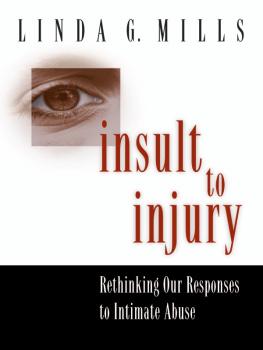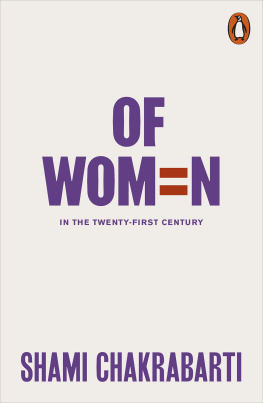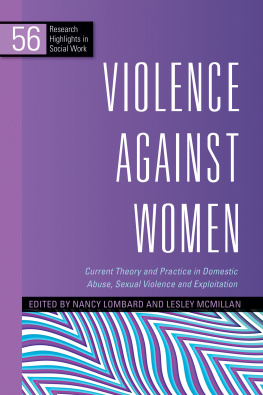WOMEN, INCARCERATION, AND HUMAN RIGHTS VIOLATIONS
Solving Social Problems
Series Editor:
Bonnie Berry, Director of the Social Problems Research Group, USA
Solving Social Problems provides a forum for the description and measurement of social problems, with a keen focus on the concrete remedies proposed for their solution. The series takes an international perspective, exploring social problems in various parts of the world, with the central concern being always their possible remedy. As such, work is welcomed on subjects as diverse as environmental damage, terrorism, economic disparities and economic devastation, poverty, inequalities, domestic assaults and sexual abuse, health care, natural disasters, labour inequality, animal abuse, crime, and mental illness and its treatment. In addition to recommending solutions to social problems, the books in this series are theoretically sophisticated, exploring previous discussions of the issues in question, examining other attempts to resolve them, and adopting and discussing methodologies that are commonly used to measure social problems. Proposed solutions may be framed as changes in policy, practice, or more broadly, social change and social movement. Solutions may be reflective of ideology, but are always pragmatic and detailed, explaining the means by which the suggested solutions might be achieved.
Also in the series
Regulating Alcohol around the World
Policy Cocktails
Tiffany Bergin
The Evidence Enigma
Correctional Boot Camps and Other Failures in Evidence-Based Policymaking
Tiffany Bergin
Street Practice
Changing the Lens on Poverty and Public Assistance
Lori McNeil
Prison Violence
Causes, Consequences and Solutions
Kristine Levan
Women, Incarceration, and Human Rights Violations
Feminist Criminology and Corrections
ALANA VAN GUNDY
Miami University, USA
and
AMY BAUMANN-GRAU
University of Cincinnati, USA
First 2013 published by Ashgate Publishing
Published 2016 by Routledge
2 Park Square, Milton Park, Abingdon, Oxon OX14 4RN
711 Third Avenue, New York, NY 10017, USA
Routledge is an imprint of the Taylor & Francis Group, an informa business
Copyright Alana Van Gundy and Amy Baumann-Grau
Alana Van Gundy and Amy Baumann-Grau have asserted their right under the Copyright, Designs and Patents Act, 1988, to be identified as the authors of this work.
All rights reserved. No part of this book may be reprinted or reproduced or utilised in any form or by any electronic, mechanical, or other means, now known or hereafter invented, including photocopying and recording, or in any information storage or retrieval system, without permission in writing from the publishers.
Notice:
Product or corporate names may be trademarks or registered trademarks, and are used only for identification and explanation without intent to infringe.
British Library Cataloguing in Publication Data
A catalogue record for this book is available from the British Library
The Library of Congress has cataloged the printed edition as follows:
Van Gundy, Alana.
Women, Incarceration, and Human Rights Violations: Feminist Criminology and
Corrections / by Alana Van Gundy and Amy Baumann-Grau.
pages cm.(Solving social problems)
Includes bibliographical references and index.
ISBN 978-1-4094-5769-5 (hardback: alk. paper)
1. Women prisonersAbuse of. 2. Feminist criminology. 3. Womens rights. 4. WomenCrimes against. 5. Human rights. 6. Prison administration. I. Baumann-Grau, Amy. II. Title.
HV8738.V378 2013
365.6dc23
2013007767
ISBN 9781409457695 (hbk)
Thanks and love to
M, G, D, V, G, and E
Super Kim
Momma Johnson and family
Sue and Sweetie
Dedicated to
My heartbeat. My Levi.
Contents
Feminist Criminology, Gender-Specificity,
and Human Rights
Feminist criminology is a critical theory that questions the ability of general criminological theories to predict, address, and respond to the delinquent behavior of female offenders. The combination of the fundamental concept of feminism (equality for women) and a focus on the deviant behavior of women provides a distinct viewpoint of why women engage in delinquent behavior, the importance of addressing gender-specific needs, and the resultant human rights violations that occur when those gender-specific needs are not addressed. This chapter will first present an overview of feminism and feminist criminology, provide an argument for gender-specificity, discuss the United Nations Declaration of Human Rights and resultant conventions, and relate the gender-specific needs of females who are incarcerated to violations of human rights. It will conclude with a brief overview of the remaining chapters.
Feminism
The terms feminist and feminism elicit a myriad of definitions, thoughts, and emotions. They are controversial terms that cultivate division among laypeople and academics, right-wing and left-wing ideology, and between nations. Feminism is a dynamic concept that is defined by social, political, and economic context across geographical location and at its core is the concept of equality. Anne Logan defines feminists as people (not necessarily women) whose words or actions indicate that they perceived gendered inequalities in social relationships and in access to power, and who consciously decided to take some action, however small, to improve the status or condition of women (Logan, 2008, p. 5). Feminists, therefore, are advocates who participate in action to advance the field of feminism, and feminism is considered the collective activism, movements, and ideologies that advance the social, political, and economic rights of women.
Feminism focuses on the gendered history, experiences, and social contexts of women as well as the social construction of gender (Gilligan, 1977). Social constructionists and feminist theorists argue that gender is a creation or byproduct of the society in which it resides. From birth onward, an individuals gender is learned through experiences with others, the expectations of others, and the society in which the individual resides. In many societies, women are or have been taught that females are subordinate to males. This is mostly evident within patriarchal societies and it comes in many forms. For example, in some societies females are not allowed to show their face or body in order to not cause lust in a male, they do not have the right to education, and any breach of gender expectations or stereotypes may result in mutilation, incarceration, or death. However, despite these extremes, results of the social construction of gender are also evident in egalitarian societies. In these societies, females can be paid less for working the same job, may be banned from serving in particular offices or specialty positions, and can be denied the right to decide what to do with their own bodies. Feminists argue that how a woman is defined through the societal construction of gender will determine and impact her trajectory throughout her life course. The social construction of gender will also determine her status as a human, meaning if she is even able to be viewed as an individual worthy of being protected by law.
In addition, feminist theories examine the intersections between gender, politics, power relations, and sexuality. Themes throughout the multiple forms of feminist theory include a focus on discrimination, stereotyping, objectification, oppression, and patriarchy. Feminism calls for the equal rights of women to access education and employment while maintaining equal pay. Similarly, rights such as a womans ability to enter into a property contract, right to vote, right to reproductive rights including access to contraceptives and abortion, and workplace rights such as maternity leave are additional areas of foci for feminism. As a result of the feminist movement, womens suffrage was achieved beginning with New Zealand in 1893 and followed in succession by Australia, the United States, and France. In addition, a large portion of the feminist movement focuses on protecting women from domestic violence, sexual harassment, and sexual assault.







